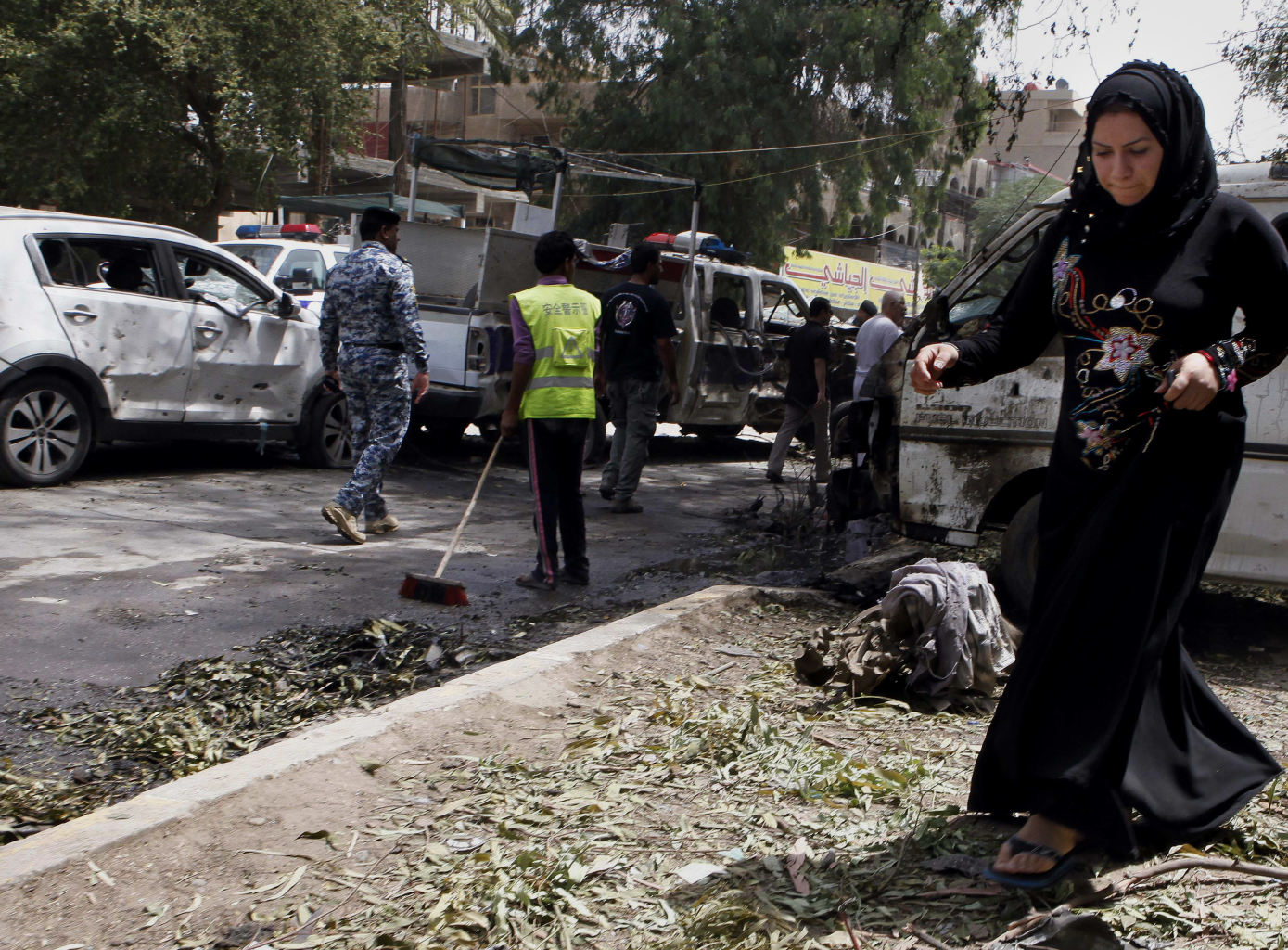Click on image for full picture
 Qusayr, Syria
Qusayr, SyriaClick on image for full picture
 The city is important to the Syrian rebels as it is a weapons route into Syria from their Lebanese supporters. At the same time, the city's location is important to President Assad's forces, as it sits on the way from the capital Damascus to his Alewite tribal stronghold in Western Syria, as well as to Syria's two Mediterranean ports.
The city is important to the Syrian rebels as it is a weapons route into Syria from their Lebanese supporters. At the same time, the city's location is important to President Assad's forces, as it sits on the way from the capital Damascus to his Alewite tribal stronghold in Western Syria, as well as to Syria's two Mediterranean ports.Click on image for full picture
 Syria's strongman, Bashar al-Assad, is a member of the Alewite tribe, an offshoot of the larger Shiite religious schism. His ethnic group provides core loyalty within the armed forces.
Syria's strongman, Bashar al-Assad, is a member of the Alewite tribe, an offshoot of the larger Shiite religious schism. His ethnic group provides core loyalty within the armed forces.Describing the daily blow-by-blows of the path of this conflict seems pointless (and dark), however, the position of Syrian President Assad had apparently weakened so much in the past month that Hezbollah (with the blessing of its Iranian sugar daddy) felt it necessary to intervene directly and openly.
Summary -
* Injection of thousands of Hezbollah fighters from Lebanon into the Syrian civil war. In retaliation, rockets are already being fired back into Lebanon, and the pot is being stirred by Sunni groups in Lebanon that support the Syrian rebels.
* Assad's position, bolstered by the open support of Hezbollah, has been strengthened at least temporarily, as Syrian rebels have begun reinforcing their own force levels in the Qusayr fight. At the same time, there are increasing reports of Assad's more than incidental use of chemical weapons. Over a month ago, use of chemical weapons was a red line that would prompt a "recalculation" of the US position. Apparently, isolated usage was tested by Assad, no one chose to officially take note, so his usage may be growing. Along with up-tempo Russian weapon shipments, these three factors have added to Assad's current uptick in advantage. ("Syria: French journalists catalogue extensive use of chemical weapons" May 27, UK Telegraph)
Click on image for full picture
 This map provided by the BBC shows the extent of control by Syrian anti-Assad forces, and those of President Assad.
This map provided by the BBC shows the extent of control by Syrian anti-Assad forces, and those of President Assad.* Meanwhile, Sunni extremist groups in Iraq are roiling that country. The UN reports that over 1000 mainly civilians died in May alone from car bombs, etc. There are reports that al Qaeda in Iraq and in Syria have strengthened their own connections and may be trying to carve out their own new territory in power vacuums brought about by the Syrian conflict.
Click on image for full picture
 Cleanup of a car bomb in Iraq. Fears are growing that government efforts to contain the most recent surge in sectarian violence are not sufficient
Cleanup of a car bomb in Iraq. Fears are growing that government efforts to contain the most recent surge in sectarian violence are not sufficient* As mentioned, Russia is declaring further shipments of advanced weaponry to Syria's Assad, even as the EU has ended its arms embargo to Syria, opening the possibility of more weapons headed to the Syrian rebels (already being armed by Saudi Arabia and other Gulf States).
Click on image for full picture
 Weapons flow from Saudi Arabia and other Gulf States into Turkey from where they are smuggled south into Syria. Iran supplies aid directly to Syria's Assad, crossing Iraqi airspace. The US wants Iraq to stop Iranian flights over the country, but Iraq's Shiite government does not consider it a high priority.
Weapons flow from Saudi Arabia and other Gulf States into Turkey from where they are smuggled south into Syria. Iran supplies aid directly to Syria's Assad, crossing Iraqi airspace. The US wants Iraq to stop Iranian flights over the country, but Iraq's Shiite government does not consider it a high priority.* Let's not forget Turkey. Last week, according to a Washington Times report, "Turkish Deputy Prime Minister Bekir Bozdag said ... that Hezbollah, or “Party of God” in Arabic, should change its name to “Party of Satan,” blaming the terrorist organization for killing thousands of civilians in Syria. ... Bozdag made the remarks on Sunday at an international symposium in Ankara, titled “Problems of the Islamic World and Solutions,” Today’s Zaman reports." So much for the carefully measured words of diplomacy (while on the Syrian street, "Hezbshaytaan" is becoming part of the mainstream Arab Sunni lexicon - notes Stratfor, a geopolitical intelligence blog).
The conflict is spreading, not being contained. And Israel is watching closely.

1 comment:
The future is looking grim for the whole region. Your mention of al Qaeda in this and the previous post relates to the fact that, according to this New Yorker article, the strongest rebel group operating in Syria is al Nusra, which is merely al Qaeda in Iraq by another name.
Post a Comment